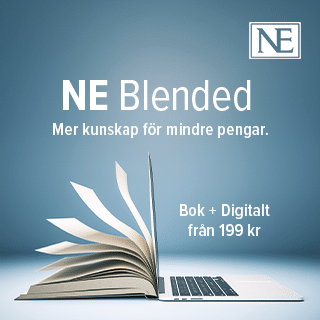Contextualizing inquiry – Negotiations of tasks, tools and actions in an upper secondary classroom
Patrik Lilja har studerat hur inquiry-principer i form av problembaserat lärande och projekt integreras i utbildningen på en gymnasieskola.
– Grundidén är att lärandet organiseras som en process där elever ställer frågor, utför undersökningar, skapar produkter av olika slag, diskuterar och reflekterar, säger Patrik Lilja.
Patrik Lilja
Göteborgs universitet
2012-12-18
Kontextualisering av inquirybegreppet – Förhandlingar av uppgifter, redskap och handling på ett gymnasieprogram
Contextualizing inquiry – Negotiations of tasks, tools and actions in an upper secondary classroom
Institutionen för pedagogik, kommunikation och lärande
Kontextualisering av inquirybegreppet – Förhandlingar av uppgifter, redskap och handling på ett gymnasieprogram
Syftet med denna avhandling är att teoretiskt och empiriskt undersöka hur inquiry-principer integreras, eller kontextualiseras, i samtida utbildning, samt vilka konsekvenser detta får för klassrumsaktiviteter, lärande och utveckling.
I avhandlingen görs en serie delstudier i en utbildningsmiljö, samhällsprogrammet på en Svensk gymnasieskola, som i detta perspektiv är intressant på flera sätt. Miljön innehåller element både från projektarbete och problembaserat lärande (PBL), vilka båda är pedagogiska modeller som är tydligt inspirerade av inquiryprinciper. Mål som att utveckla sociala färdigheter såväl som informationskompetenser lyfts fram i beskrivningar av programmet. Miljön är samtidigt under utveckling, och lärare och elever kan beskrivas som i färd med att förändra formerna för undervisning och skolarbete.
Contextualizing inquiry – Negotiations of tasks, tools and actions in an upper secondary classroom
The challenges for education in contemporary society are complex. The emergence of the post-industrial society – an information- or knowledge society, where the development of digital technologies are pivotal – have altered the premises for the production, communication and uptake of knowledge. Students of today are not only expected to learn specific knowledge and skills, but also to develop more generic and complex competences and dispositions, like critical reasoning and democratic values. They are also to be life-long learners. How can education be arranged and instruction carried out in order to face these challenges? One answer is to develop instructional methods building on principles of inquiry. Inquiry has a long history, originating from progressivist and constructivist traditions, with roots in the work of John Dewey.
In the last decades, inquiry has received renewed attention, both theoretically and practically. The work presented in this thesis sets out to investigate, theoretically and empirically, how principles of inquiry are integrated, or contextualised, in contemporary education and the consequences for classroom activities; and for learning and development. The empirical material was collected in an ethnographic field study in a Swedish upper secondary school program, organised according to principles of inquiry. The students are involved in planning their own studies, organise their work according to a PBL-format; and carry out thematic projects spanning over several school subjects. Digital technologies are integrated in the students’ activities. In four analyses, different aspects of the students’ work are penetrated. In the first empirical chapter, students’ planning of group work, involving complex questions, is analysed. How the students manage tensions between integrative and local rationales inherent in the task, and the consequences of this for the development of competences for managing inquiry, is discussed. The second empirical chapter addresses students’ argumentation. In the analysis, students’ unfolding argumentation in a controversial issue is followed over an extended period of time. The relationship between the involvement in argumentative activities, authenticity and learning in the setting is discussed. The third empirical chapter considers text production. Students’ work with an essay is investigated focusing on how writing activities are organised and integrated as part of inquiry, and how these contribute to the development of literacy. In the fourth empirical chapter, students’ project work – where they have the task of planning a housing area – is studied. As part of the work they are to move outside the school, investigating how city planning is carried out in the local society.
The analysis is focusing on how the actions of the students are directed, how they navigate in the intersection between school and society, and what kind of knowledge is developed in the process. All analyses point to the central role of negotiations of tasks, tools and actions in realizing pedagogy in accordance with the principles of inquiry. This “communicative ecology of negotiation” plays a key role in creating premises for the processes of learning and development observed.
Relaterade länkar

Biologi
 Åk 7–Vux
Åk 7–Vux Hållbar utveckling i förskolan
 Fsk
Fsk 






